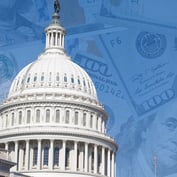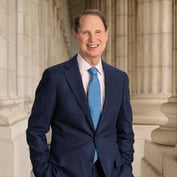Pension bill negotiations ended Thursday night as a result of a dispute about whether the package that includes the pension bill should include a provision that would cut estate taxes.
Members of a House-Senate conference committee had hoped they were close to resolving differences between the House version of the pension bill, H.R. 2830, and the Senate version, S. 1783.
Many Democrats and some Republicans have argued that cutting estate taxes would hurt federal tax revenue and that the controversy ought to be kept out of the pension bill package.
House Republican leaders and Senate Majority Leader William Frist, R-Tenn., responded earlier this week by agreeing to keep the estate tax issue out of the pension bill package. But pension bill talks foundered after several Republicans on the conference committee continued to insist on including an estate tax provision.
Sen. Edward Kennedy, D-Mass., a conferee, issued a statement blaming disagreements between Republicans for the delays in completing work on the pension bill.
“Republican tax politics got in the way of progress for the retirement security of tens of millions Americans,” Kennedy says in the statement.
“The failure of negotiators to reach a deal means that work on the pension measure, as well as the tax provisions, is likely on hold until after the August recess,” Tim Vandenberg, an analyst at Washington Analysis, writes in a note commenting on the state of pension bill negotiations.
The core provisions of the pension bill are supposed to shore up the finances of defined benefit pension plans and their guarantor, the Pension Benefit Guaranty Corp.
Other provisions of interest to life insurers could set sales standards for corporate-owned life insurance, encourage employers to enroll employees in 401(k) plans automatically and make it easier for investment advisors to offer financial advice to 401(k) plan members.
Another provision might encourage insurers to sell annuities with long term care riders.








 July 28, 2006 at 05:27 AM
July 28, 2006 at 05:27 AM








